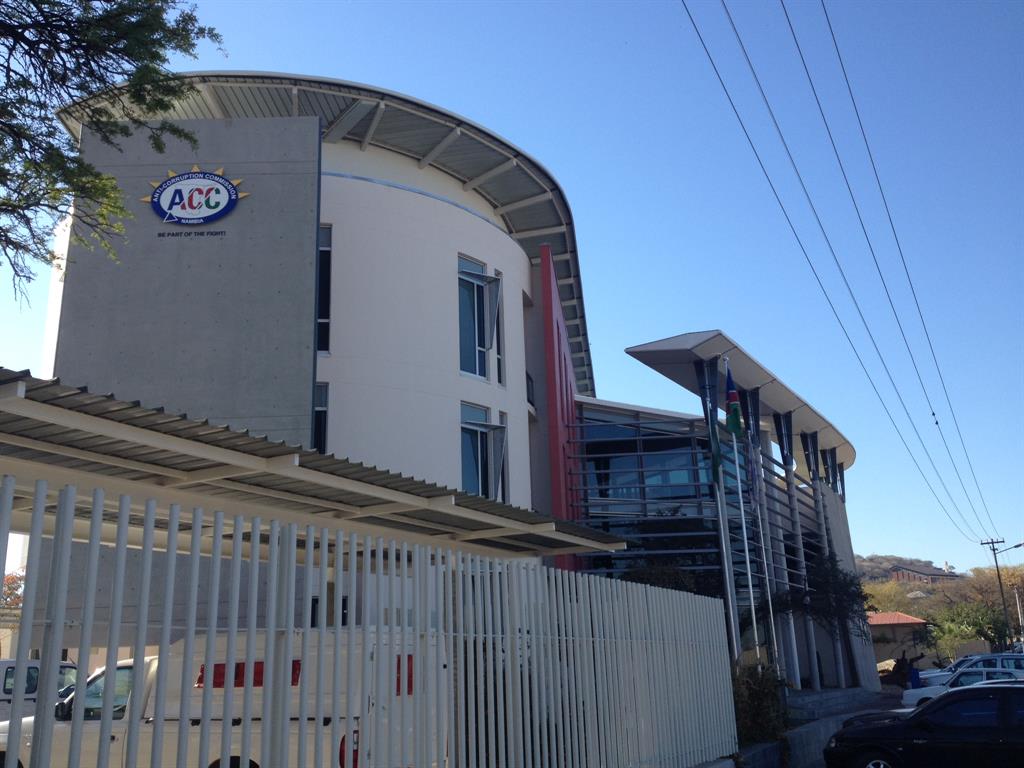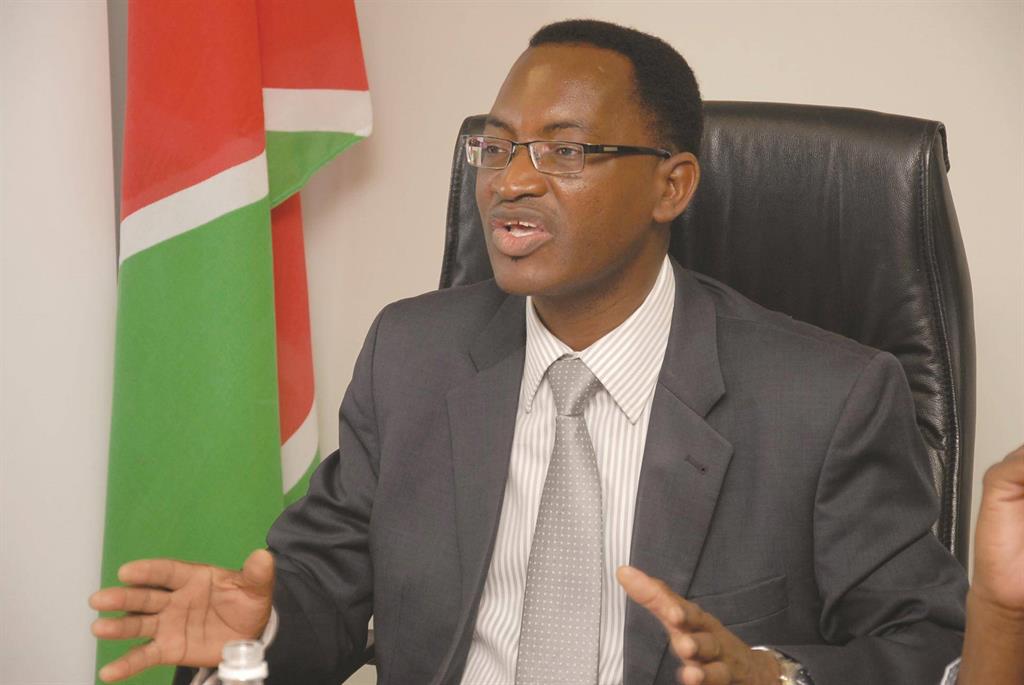ACC’s Noa reacts to flurry of changes
The ACC boss has extensively weighed in on the changes happening at the commission, ironically when it is pre-occupied with the biggest probe of its existence.
JEMIMA BEUKES
WINDHOEK
Anti-corruption commission (ACC) director-general Paulus Noa says the law prohibits the executive director of the commission from getting involved in investigations carried out at the anti-graft body.
Only the director-general, deputy director general and investigators issued with an investigation authority in terms of the ACC Act are allowed to investigate matters brought to the commission.
Noa also said new ACC executive director Tylvas Shilongo, who joined the commission on Monday from the Namibia Central Intelligence Service (NCIS), was not involved in the reversal of the appointment of the ACC chief investigator.
Prime Minister Saara Kuugongelwa-Amadhila reversed the appointment of Phelem Masule as chief investigator and ordered that the recruitment process starts afresh.
This was after Noa received a complaint on 17 July from the candidate who scored highest in the interview for the position. Noa, who said he is not involved in interviews at that level, said he replied on 23 July, urging the candidate to approach the Public Service Commission (PSC) which endorsed Masule’s appointment.
Alternatively, Noa advised, the candidate could approach the Office of the Prime Minister (OPM) for recourse.
A spy at ACC
“The executive director is an accounting officer, to deal with things like finance and to allow the director-general to focus on investigations,” he told Namibian Sun late yesterday.
“Administrative issues take up a lot of the director-general’s time, so it was for this reason that appointing the executive director was made necessary through law.”
It was been suggested that the appointment of a spy at the ACC was a clandestine attempt to thwart investigations into the Fishrot scandal, ACC’s biggest investigation to date.
“The only time the executive director comes into contact with investigators is maybe when he signs off their S&T [subsistence and travel] allowance for trips. But even then, investigators are not allowed to disclose what they are going to investigate.
“ACC has what is called ‘authorised officers’ for investigations and the executive director is not one of them.
“Even the appointment of special investigators, people we bring in for specific expertise such as forensics whom we appointed to study the Fishrot financial transactions, are approved by me,” Noa said.
Change of guard
Asked whether the change of guard at the commission would not disrupt the flow of current investigations, Noa said former ACC executive director Hannu Shipena, whom Shilongo replaced, was in no way involved in investigations.
“Their work is to administer and manage the office, therefore allowing me to focus on my core mandate, which is investigations.”
On the appointment of the chief investigator, Noa said this position became vacant when its previous incumbent, Nelius Becker, resigned to rejoin the Namibian police.
“He wanted to leave on his own and we surely have no right to stop anyone from resigning and seek opportunities elsewhere.
“The position was advertised and people, including internal staff such as the colleague who was appointed, applied.”
“When the candidate who scored more complained to my office, I asked the previous executive director (Shipena) to provide me with all documents pertaining to the interviews and to explain what really transpired.”
“It was at that point that I advised this candidate to seek recourse from the PSC and OPM, which he did. The process will be started over and those interested can still apply.”
Ombudsman weighs in
Commenting on the commission’s issues, Ombudsman John Walters said too much interference poses the risk of reducing the public’s confidence in the ACC.
This is particularly so when such changes take place at the height of the all-important Fishrot probe.
“There is a high turnover of staff in public service and if we are supposed to be independent, then we should recruit and appoint our own staff including our executive directors,” Walters said yesterday.
He added that it is imperative for government to perform in a transparent and accountable manner.
“At this point, we can only speculate why this was done because we do not know why these changes were made. No reasons were provided and that is not good for ACC and government.
“A minister is an administrative body and must explain their decisions,” he said.
[email protected]
WINDHOEK
Anti-corruption commission (ACC) director-general Paulus Noa says the law prohibits the executive director of the commission from getting involved in investigations carried out at the anti-graft body.
Only the director-general, deputy director general and investigators issued with an investigation authority in terms of the ACC Act are allowed to investigate matters brought to the commission.
Noa also said new ACC executive director Tylvas Shilongo, who joined the commission on Monday from the Namibia Central Intelligence Service (NCIS), was not involved in the reversal of the appointment of the ACC chief investigator.
Prime Minister Saara Kuugongelwa-Amadhila reversed the appointment of Phelem Masule as chief investigator and ordered that the recruitment process starts afresh.
This was after Noa received a complaint on 17 July from the candidate who scored highest in the interview for the position. Noa, who said he is not involved in interviews at that level, said he replied on 23 July, urging the candidate to approach the Public Service Commission (PSC) which endorsed Masule’s appointment.
Alternatively, Noa advised, the candidate could approach the Office of the Prime Minister (OPM) for recourse.
A spy at ACC
“The executive director is an accounting officer, to deal with things like finance and to allow the director-general to focus on investigations,” he told Namibian Sun late yesterday.
“Administrative issues take up a lot of the director-general’s time, so it was for this reason that appointing the executive director was made necessary through law.”
It was been suggested that the appointment of a spy at the ACC was a clandestine attempt to thwart investigations into the Fishrot scandal, ACC’s biggest investigation to date.
“The only time the executive director comes into contact with investigators is maybe when he signs off their S&T [subsistence and travel] allowance for trips. But even then, investigators are not allowed to disclose what they are going to investigate.
“ACC has what is called ‘authorised officers’ for investigations and the executive director is not one of them.
“Even the appointment of special investigators, people we bring in for specific expertise such as forensics whom we appointed to study the Fishrot financial transactions, are approved by me,” Noa said.
Change of guard
Asked whether the change of guard at the commission would not disrupt the flow of current investigations, Noa said former ACC executive director Hannu Shipena, whom Shilongo replaced, was in no way involved in investigations.
“Their work is to administer and manage the office, therefore allowing me to focus on my core mandate, which is investigations.”
On the appointment of the chief investigator, Noa said this position became vacant when its previous incumbent, Nelius Becker, resigned to rejoin the Namibian police.
“He wanted to leave on his own and we surely have no right to stop anyone from resigning and seek opportunities elsewhere.
“The position was advertised and people, including internal staff such as the colleague who was appointed, applied.”
“When the candidate who scored more complained to my office, I asked the previous executive director (Shipena) to provide me with all documents pertaining to the interviews and to explain what really transpired.”
“It was at that point that I advised this candidate to seek recourse from the PSC and OPM, which he did. The process will be started over and those interested can still apply.”
Ombudsman weighs in
Commenting on the commission’s issues, Ombudsman John Walters said too much interference poses the risk of reducing the public’s confidence in the ACC.
This is particularly so when such changes take place at the height of the all-important Fishrot probe.
“There is a high turnover of staff in public service and if we are supposed to be independent, then we should recruit and appoint our own staff including our executive directors,” Walters said yesterday.
He added that it is imperative for government to perform in a transparent and accountable manner.
“At this point, we can only speculate why this was done because we do not know why these changes were made. No reasons were provided and that is not good for ACC and government.
“A minister is an administrative body and must explain their decisions,” he said.
[email protected]






Comments
Namibian Sun
No comments have been left on this article